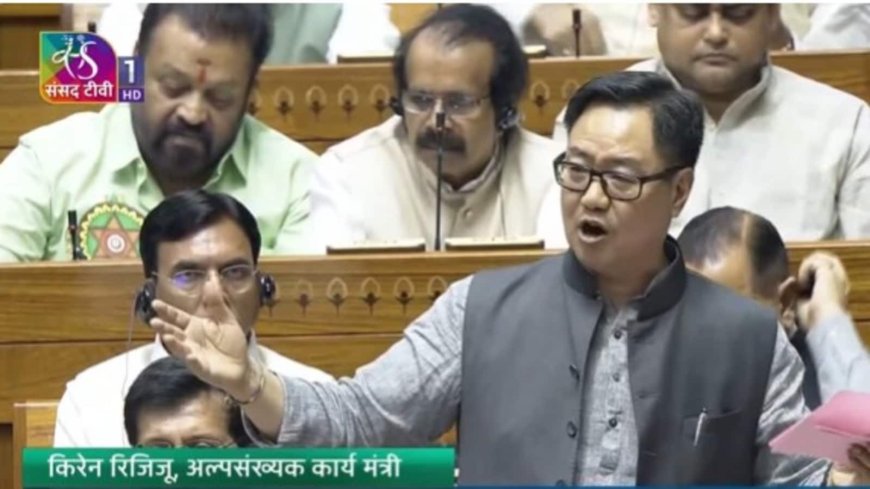Waqf Bill in Lok Sabha: ‘Parliament was claimed to be Waqf property,’ says Kiren Rijiju
Minority Affairs Minister Kiren Rijiju addressed the Lok Sabha, stating that without the bill, claims on the Parliament building and airport as waqf properties could arise, accusing the opposition of misleading the public regarding the Waqf Bill.

Waqf Bill in Lok Sabha: ‘Parliament was claimed to be Waqf property,’ says Kiren Rijiju
In a recent session of the Lok Sabha, the Waqf Bill took center stage as Kiren Rijiju, the Minister of Law and Justice, made a significant assertion regarding Waqf property. The inclusion of this legislation in parliamentary discussions highlights its growing importance in India's socio-political landscape. Rijiju’s remarks prompted a spirited debate among lawmakers, shedding light on the complexities surrounding the management of Waqf properties in the country.
Understanding the Waqf Bill
The Waqf Bill aims to enhance transparency and improve the administration of Waqf properties across India. Rijiju’s comments regarding the Parliament being claimed as Waqf property stirred controversy, suggesting that legal interpretations of religious properties could have wider implications. The Waqf Act of 1995 has been a point of contention, with calls for reforms to tackle mismanagement and corruption issues that plague the administration of these properties.
Significance of Waqf Properties
Waqf properties hold immense cultural and historical significance in India, serving various social and religious purposes. They are meant to be used for charitable activities, education, and social welfare, benefiting a large section of society. Understanding the implications of the Waqf Bill is crucial, as it influences not only the Muslim community but also affects the broader legislative framework around property management in India.
Kiren Rijiju's Insights
Kiren Rijiju’s statements raise pertinent questions about the relationship between legislation and religious property claims. His assertion that even the Parliament could be linked to Waqf property opens up discussions on ownership, legal rights, and religious sentiments. This debatable issue requires careful consideration, ensuring that legislative actions respect the diverse fabric of India's religious communities.
Reactions in Lok Sabha
The Lok Sabha session witnessed varied reactions from members across different parties. Some supported Rijiju's call for a clear definition and governance structure for Waqf properties, while others cautioned against potential misinterpretations. The debate underscored the need for an inclusive dialogue that considers the diverse opinions surrounding the management of religious endowments.
Conclusion
The Waqf Bill's discussion in the Lok Sabha, referencing Kiren Rijiju’s remarks, indicates a critical juncture in India's legislative approach towards Waqf properties. As this topic evolves, it promises to shape the socio-political discourses surrounding land ownership and religious rights in the country. For more updates, visit dharmyuddh.com. Keywords: Waqf Bill Lok Sabha news, Kiren Rijiju statements, Waqf property claims, Indian legislation on Waqf, management of Waqf properties, Waqf Act of 1995 updates, importance of Waqf in India, Waqf properties significance, religious property legislation in India, socio-political implications of Waqf Bill







